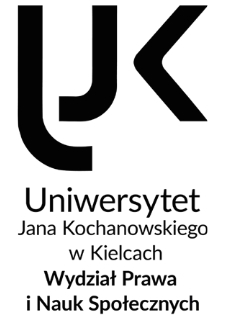Biblioteka Cyfrowa Uniwersytetu Jana Kochanowskiego udostępnia 13 367 obiektów cyfrowych
Obiekt
Tytuł: Zwalczanie mowy nienawiści w parlamencie w świetle doświadczeń Sejmu RP(Dysertacja doktorska z obszaru nauk społecznych, dyscyplina: nauka o polityce i administracji)Promotor:
Twórca:
Tytuł odmienny:
Abstrakt:
The subject of this dissertation is the phenomenon of hate speech. An important point of reference for hate speech is the constitutional perspective. Hate speech is considered a serious violation of human rights, hence the importance of education on combating hate speech. This issue is also very important due to the fact that the conflict between freedom of speech and hate speech remains one of the most problematic areas in the functioning of a democratic state and society. Hate speech is sometimes treated as a manifestation of freedom of speech and positions are formulated against its limitation by legislation. The author analyzed hate speech used by parliamentarians and indicated the methods by which it can be effectively combated Chapter 1 presents "Freedom of speech in the context of the political position of parliamentarians". Chapter 2 analyzes "General characteristics of hate speech and international standards for combating it". In chapter 3, the subject of the analysis is "Hate speech of parliamentarians in the light of the act on the performance of the mandate of deputy and senator, the Rules of Procedure of the Sejm and the Principles of Ethics for Deputies". Finally, in chapter 4, the subject of the analysis is "Hate speech among other unethical behaviors of MPs in the light of the work of the Ethics Committee of the Sejm of the Republic of Poland in the years 1997-2019 and proposals for new regulations combating hate speech - own research". The following research methods were taken into account: 1) institutional and legal method; 2) historical method; 3) system analysis method and 4) content analysis method. The hypotheses formulated by the author were positively verified. In accordance with the very basic principles of decency, above political divisions, parties should make efforts to exclude hate speech from activities that gain an advantage over adversaries. Usefulness in the public space in the Sejm should be proven in dialogue, with the reasons presented. Hate speech cannot be treated as an instrument that MPs will use to administer justice among themselves. Building an imagination that would reject hate speech should be accompanied by a constant discourse about rights. The aim of such a continuous dialogue should be based on the desire to reinforce the certainty that no law gives permission for hate speech. Those who use it to exclude others should themselves be stigmatized, excluded and subjected to social ostracism. In the conclusion of his dissertation, the author proposed a number of new solutions, the application of which would be conducive to more effective combating of hate speech by members of the Sejm of the Republic of Poland.
Uwagi:
Zawiera bibliografię Zawiera ilustracje
Identyfikator:
oai:bibliotekacyfrowa.ujk.edu.pl:12009
Katalog komputerowy:
Język:
Uzyskany tytuł:
Data uzyskania stopnia:
Instytucja nadająca tytuł:
Uniwersytet Jana Kochanowskiego w Kielcach
Promotor:
Jaskiernia, Jerzy (1950- ) Pałka-Suchojad, Karolina. Promotor pomocniczy
Recenzent:
Chmaj, Marek ; Piwnicki, Grzegorz Żukiewicz, Przemysław
Dziedzina nauki:
Dyscyplina naukowa:
Nauki o polityce i administracji
Wydział:
Wydział Prawa i Nauk Społecznych
Typ:
Prawa dostępu:
tylko w Oddziale Informacji Naukowej
Stan publikacji:
Kolekcje, do których przypisany jest obiekt:
- Biblioteka Cyfrowa Uniwersytetu Jana Kochanowskiego > Rozprawy doktorskie > Wydział Prawa i Nauk Społecznych
Data ostatniej modyfikacji:
29 sty 2026
Data dodania obiektu:
30 lip 2024
Liczba wyświetleń treści obiektu:
1
Wszystkie dostępne wersje tego obiektu:
https://bibliotekacyfrowa.ujk.edu.pl/publication/12640

